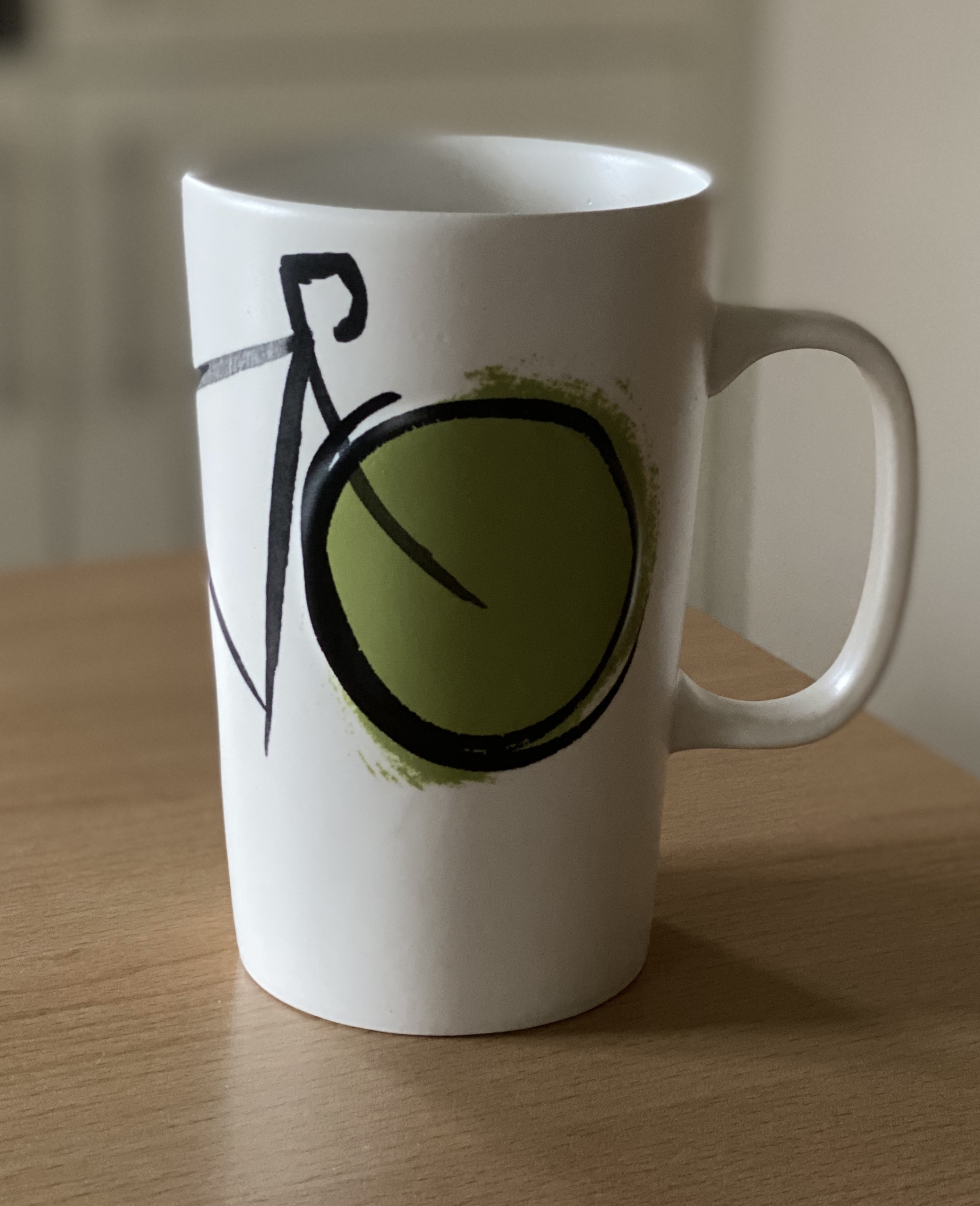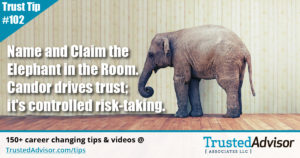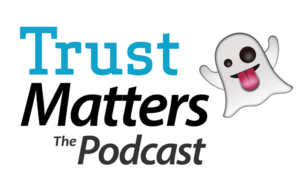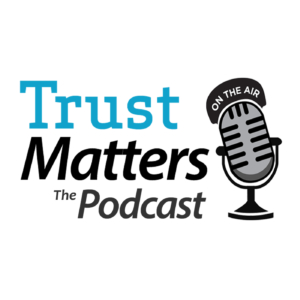Building Trust In A Crisis
Pandemic. Covid-19. Unprecedented. New normal…
… You can write the rest of this paragraph yourself – things have changed. Is there anything left to be written about it all?
Yes there is. It’s about trust. In particular – how do you manage interpersonal trust in professional relationships? How have trust dynamics changed in working with and selling to clients? What about trust in management and leadership? 
For over 20 years, Trusted Advisor Associates has helped professionals deepen trust with clients and colleagues. We built this page to share our most-relevant thinking on navigating trust in professional relationships during the current crisis.
Click on Areas of focus:
Emotional Components of Trust
In normal times, the emotional aspects of trustworthiness (Intimacy and Self orientation) are slightly more powerful than the non-emotional traits (Credibility & Reliability) See The Trust Equation to learn more.
Now, the importance of those emotional components is multiples more – since the overwhelming response to a crisis like this is an emotional one. Broadly speaking, we need to manage our Self-orientation and increase our Intimacy.
Self orientation
Your self-orientation is likely to be high right now, whether you realize it or not. On the other hand – so is everyone else’s.
We recognize – and will remember – those who are able to genuinely reach out beyond their own psyches and connect with others in such times.
Grant yourself the grace to realize that things are different . Recognize and acknowledge what you are experiencing, and manage your Self-orientation moving forward.
Resources
- Trust in the Time of the COVID-19 Pandemic (Trust Matters, The Podcast)
- Ninja tips” for serious S-management these days (Blog Post– The Get Real Project)
- How Will You Respond in a Time of Crisis (Blog Post)
- Five Best Practices for Managing the Biggest Client Relationship De-railer: Fear (Webinar Video)
- Self orientation & The Trust Equation (Video)
- Riding the Shark: Vanquishing Fear in Selling (ebook)
Intimacy & Empathy
Everyone deals with stress in their own way. You are unique – and so is everyone else. 
Remember the acronym, N.A.P.A.L.M.: Not All People Are Like Me. Others’ experiences are likely to be different from yours, even if their circumstances appear to be similar.
In times of stress, empathy is rare: at the same time, it’s vastly more valuable. The ability to truly understand (while not necessarily agreeing with) the other person’s situation creates emotional safety, or Intimacy, for the other person. And Intimacy was already the most important factor in the Trust Equation.
Resources
Virtual Communication & Leadership
The hallmark of the COVID-19 crisis is that it requires physical distancing.  It raises to the forefront the question: How do you create trust at a distance? Those who figure that out now will be appreciated, effective, and successful going forward.
It raises to the forefront the question: How do you create trust at a distance? Those who figure that out now will be appreciated, effective, and successful going forward.
Resources
- 7 Lessons to Improve Trust in a Virtual World (Blog Post)
- The Importance of Trust in Remote Leadership (Podcast Interview with Charles H. Green)
- Trust and Virtual Teams (Blog Post)
Above All Else…
Trust is personal. Organizations don’t build trust, people do.
Let us know what you’re experiencing, and how we can help the people in your organization build trust in these times of change. Please reach out. We look forward to the conversation.![]()




 I’ve often wondered: is our real workplace office the coffee shop?
I’ve often wondered: is our real workplace office the coffee shop? You may have heard about the just-released movie “
You may have heard about the just-released movie “
